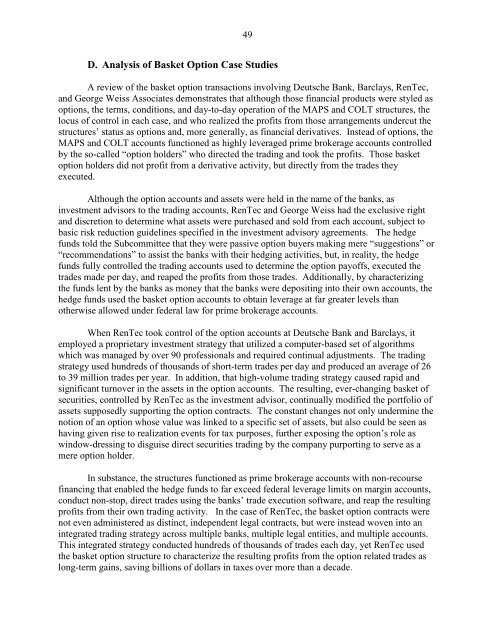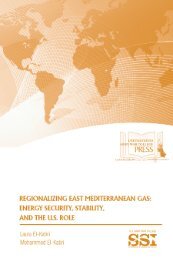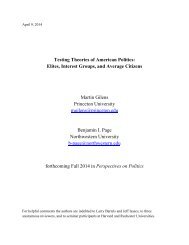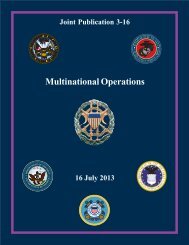ABUSE OF STRUCTURED FINANCIAL PRODUCTS- Misusing Basket Options to Avoid Taxes and Leverage Limits MAJORITY AND MINORITY STAFF REPORT
ABUSE OF STRUCTURED FINANCIAL PRODUCTS- Misusing Basket Options to Avoid Taxes and Leverage Limits MAJORITY AND MINORITY STAFF REPORT
ABUSE OF STRUCTURED FINANCIAL PRODUCTS- Misusing Basket Options to Avoid Taxes and Leverage Limits MAJORITY AND MINORITY STAFF REPORT
Create successful ePaper yourself
Turn your PDF publications into a flip-book with our unique Google optimized e-Paper software.
49<br />
D. Analysis of <strong>Basket</strong> Option Case Studies<br />
A review of the basket option transactions involving Deutsche Bank, Barclays, RenTec,<br />
<strong>and</strong> George Weiss Associates demonstrates that although those financial products were styled as<br />
options, the terms, conditions, <strong>and</strong> day-<strong>to</strong>-day operation of the MAPS <strong>and</strong> COLT structures, the<br />
locus of control in each case, <strong>and</strong> who realized the profits from those arrangements undercut the<br />
structures’ status as options <strong>and</strong>, more generally, as financial derivatives. Instead of options, the<br />
MAPS <strong>and</strong> COLT accounts functioned as highly leveraged prime brokerage accounts controlled<br />
by the so-called “option holders” who directed the trading <strong>and</strong> <strong>to</strong>ok the profits. Those basket<br />
option holders did not profit from a derivative activity, but directly from the trades they<br />
executed.<br />
Although the option accounts <strong>and</strong> assets were held in the name of the banks, as<br />
investment advisors <strong>to</strong> the trading accounts, RenTec <strong>and</strong> George Weiss had the exclusive right<br />
<strong>and</strong> discretion <strong>to</strong> determine what assets were purchased <strong>and</strong> sold from each account, subject <strong>to</strong><br />
basic risk reduction guidelines specified in the investment advisory agreements. The hedge<br />
funds <strong>to</strong>ld the Subcommittee that they were passive option buyers making mere “suggestions” or<br />
“recommendations” <strong>to</strong> assist the banks with their hedging activities, but, in reality, the hedge<br />
funds fully controlled the trading accounts used <strong>to</strong> determine the option payoffs, executed the<br />
trades made per day, <strong>and</strong> reaped the profits from those trades. Additionally, by characterizing<br />
the funds lent by the banks as money that the banks were depositing in<strong>to</strong> their own accounts, the<br />
hedge funds used the basket option accounts <strong>to</strong> obtain leverage at far greater levels than<br />
otherwise allowed under federal law for prime brokerage accounts.<br />
When RenTec <strong>to</strong>ok control of the option accounts at Deutsche Bank <strong>and</strong> Barclays, it<br />
employed a proprietary investment strategy that utilized a computer-based set of algorithms<br />
which was managed by over 90 professionals <strong>and</strong> required continual adjustments. The trading<br />
strategy used hundreds of thous<strong>and</strong>s of short-term trades per day <strong>and</strong> produced an average of 26<br />
<strong>to</strong> 39 million trades per year. In addition, that high-volume trading strategy caused rapid <strong>and</strong><br />
significant turnover in the assets in the option accounts. The resulting, ever-changing basket of<br />
securities, controlled by RenTec as the investment advisor, continually modified the portfolio of<br />
assets supposedly supporting the option contracts. The constant changes not only undermine the<br />
notion of an option whose value was linked <strong>to</strong> a specific set of assets, but also could be seen as<br />
having given rise <strong>to</strong> realization events for tax purposes, further exposing the option’s role as<br />
window-dressing <strong>to</strong> disguise direct securities trading by the company purporting <strong>to</strong> serve as a<br />
mere option holder.<br />
In substance, the structures functioned as prime brokerage accounts with non-recourse<br />
financing that enabled the hedge funds <strong>to</strong> far exceed federal leverage limits on margin accounts,<br />
conduct non-s<strong>to</strong>p, direct trades using the banks’ trade execution software, <strong>and</strong> reap the resulting<br />
profits from their own trading activity. In the case of RenTec, the basket option contracts were<br />
not even administered as distinct, independent legal contracts, but were instead woven in<strong>to</strong> an<br />
integrated trading strategy across multiple banks, multiple legal entities, <strong>and</strong> multiple accounts.<br />
This integrated strategy conducted hundreds of thous<strong>and</strong>s of trades each day, yet RenTec used<br />
the basket option structure <strong>to</strong> characterize the resulting profits from the option related trades as<br />
long-term gains, saving billions of dollars in taxes over more than a decade.







